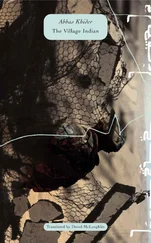József Eötvös - The Village Notary - A Romance of Hungarian Life
Здесь есть возможность читать онлайн «József Eötvös - The Village Notary - A Romance of Hungarian Life» — ознакомительный отрывок электронной книги совершенно бесплатно, а после прочтения отрывка купить полную версию. В некоторых случаях можно слушать аудио, скачать через торрент в формате fb2 и присутствует краткое содержание. Жанр: foreign_antique, foreign_prose, на английском языке. Описание произведения, (предисловие) а так же отзывы посетителей доступны на портале библиотеки ЛибКат.
- Название:The Village Notary: A Romance of Hungarian Life
- Автор:
- Жанр:
- Год:неизвестен
- ISBN:нет данных
- Рейтинг книги:3 / 5. Голосов: 1
-
Избранное:Добавить в избранное
- Отзывы:
-
Ваша оценка:
- 60
- 1
- 2
- 3
- 4
- 5
The Village Notary: A Romance of Hungarian Life: краткое содержание, описание и аннотация
Предлагаем к чтению аннотацию, описание, краткое содержание или предисловие (зависит от того, что написал сам автор книги «The Village Notary: A Romance of Hungarian Life»). Если вы не нашли необходимую информацию о книге — напишите в комментариях, мы постараемся отыскать её.
The Village Notary: A Romance of Hungarian Life — читать онлайн ознакомительный отрывок
Ниже представлен текст книги, разбитый по страницам. Система сохранения места последней прочитанной страницы, позволяет с удобством читать онлайн бесплатно книгу «The Village Notary: A Romance of Hungarian Life», без необходимости каждый раз заново искать на чём Вы остановились. Поставьте закладку, и сможете в любой момент перейти на страницу, на которой закончили чтение.
Интервал:
Закладка:
"Hast at last gone into the snare, thou precious bird?" thundered Skinner. "Never mind, you old rascal! never mind! I'll pay you, and with a vengeance, too!"
"Most sublime – " sighed the wretched musician; but the justice, unmindful of this appeal to his better feelings, continued: —
"Hold your tongue! I know all! all, I tell you. And if you will not confess, I'll freshen your memory!"
"Most sublime Lord!" sighed Peti; "I am an innocent, poor, old man. I – "
"Dog!" retorted Mr. Skinner. "If you dare to bark, I'll pull your ears, that you shall not forget it to the day of judgment. Is it not horrible? the profligate fellow would give me the lie!"
"No, sweet, gracious Lord!" cried Peti, weeping; "I do not deny any thing, but – "
"It's better for you; at all events, we need not ask you any questions. The judge knows every thing." Turning to the Pandurs, Mr. Skinner added: "Now Janosh, tell me, what did you bring that culprit for?"
"Only because we have been told to arrest all suspicious characters."
"Ah!" cried Akosh, "and the old musician is a suspicious character! You are fine fellows, and ought to be promoted!"
"We'll see that by and by!" snarled Mr. Skinner. "Now tell us, Janosh, what is the old rascal's crime?"
"Why," said the Pandur, "the long and the short of it is, that it was about three o'clock, – was it not, Pishta? – after having had our dinner and rest at the Murder-Tsharda, we rode up to St. Vilmosh forest. We had been on our legs from an early hour this morning, and were apprehensive that we should not be able to obey his worship's orders about arresting at least one suspicious character, when Pishta spied a horseman near St. Vilmosh forest, and a man to whom he was talking. 'Suppose this is Viola,' said Pishta, who was just lighting his pipe. 'Ah, indeed! suppose this is Viola!' said I; and when I looked at the horseman, I thought it was – "
"Viola?" said Mr. Skinner, with a voice which left no doubt about the answer which he expected.
"I'm sure it was he, your worship," replied Janosh; "I'll bet any thing it was he."
"Now this fellow is short-sighted," interrupted Akosh; "I wonder how many robbers Pishta saw."
"We'll see that by and by!" said Mr. Skinner, angrily. "The devil may be a judge when robbers and vagabonds find such protection. Go on. What happened next? Did you see any thing more of the criminal?"
"How was it possible? We spurred our horses on, but the poor beasts were so tired they would not run; and when we came to the place, we found no one but the old gipsy, walking to St. Vilmosh."
"Well?" said the judge impatiently.
"Of course they handcuffed him, for who knows what outrage he might have committed if he had come to St. Vilmosh," cried Akosh. "They are the very fellows to be sent after robbers. They will soon starve all robbers, by preventing honest men from leaving their houses."
Old Peti saw that he had found a protector. Growing bolder, he asked to be freed from his handcuffs, and though the justice opposed, he yielded at length to the entreaties of Kalman, Akosh, and Vandory, though not without muttering something about "patibulandus" and "fautores criminum."
"And what happened when you came up with the gipsy?" said Mr. Skinner, again addressing the Pandurs. "Was there any thing very suspicious about the old hang-dog scoundrel?"
"There was indeed!" said Janosh, twirling his moustache. "When we came up with the gipsy, – which was rather late, for the old Moor ran very fast, – Pishta called out to him, at which he appeared frightened."
"Frightened?" said Mr. Skinner. "Frightened, indeed; I'd be glad to know the reason;" and the Clerk, shaking his head, added, "This is indeed suspicious!"
"Begging your lordship's pardon," cried the gipsy, "the gentlemen swore at me, and cocked their pistols, which made me believe that they were robbers."
"Hold your tongue, you cursed black dog! If you say another word, you shall have beating enough to last you a twelvemonth." Having thus mildly admonished the prisoner, Mr. Skinner proceeded with the "benevolum." "Go on, Janosh," said he.
And Janosh went on: "Upon this Pishta asked him, 'Where is Viola?' and he answered, 'I never saw him.'"
"But we saw him in conversation with Viola!" cried the second Pandur. "I said, 'Peti, you are a liar; we have seen you talking to Viola! and unless you confess it, we'll make you dance to a queer kind of music."
"What did the gipsy say to that?" asked the Clerk.
"He said he did not know who the horseman was, which made me angry; for your worship is aware that Peti knows every body. When he saw me angry, he wanted to run away."
"Oh, Goodness gracious!" cried the gipsy; "why should I not run away, when they fell to beating me, and offered to handcuff me?"
"An honest man," said Kenihazy sententiously, "cares not for handcuffs."
"I thought so too," quoth Janosh; "therefore, when we saw that he was indeed a criminal, we hunted him down, bound his hands, and took him to his worship."
"You did your duty," said Mr. Skinner. "Now take the old fox to my house. To-morrow we'll commit him to gaol."
"But," cried Peti, "I assure your worship I am as innocent as the babe unborn!"
"I dare say you are!" said the justice with a bitter sneer. "You don't know Viola, – of course you don't. Who shod Viola's horse? eh?"
"Yes, I do know him," sighed the gipsy; "but is it my fault that I lived in the same village with him Heaven knows how long! for Viola was the best man in the world before he fell into the hands of the County Court. I confess that I did shoe his horse; but what is an old man to do against robbers armed with sticks and pistols?"
"But why do the robbers come to you? Why don't they employ honest smiths?"
"I think," said Peti, quietly, "the robbers prefer coming to my house because I do not live in the village."
"And why do you not live in the village? you scarecrow!"
"Because, my lord, the sheriff will not allow the gipsies to live in the village since Barna Jantzi's house was burned. This is hard enough for an old man like myself."
Every one of these answers was, in Mr. Skinner's eyes, a violation of the judicial dignity. The best of us dislike being mistaken in our opinion as to the merit of our fellow men. We would rather pardon their weaknesses, than be brought to shame by their good qualities. No wonder then that Paul Skinner, whose knowledge of self had given him a very bad idea of his species, would never believe a man to be innocent, whom he once suspected of any crime. It is but natural that, in the present instance, he did all in his power to make the gipsy's guilt manifest.
"Never mind," said he, "I wonder whether you'll give yourself such airs when you are in my house; Viola too will be caught by to-morrow morning. Take him to my house, and don't let him escape, – else – "
Upon this the Pandurs prepared the handcuffs, when Akosh interfered, offering to be bail for the gipsy's appearance. Mr. Skinner, however, was but too happy to have his revenge for the jokes which the young man had made at his expense in the course of the interrogatory.
"You know I am always happy to oblige you," said he, "but in the present instance it is impossible. By to-morrow Viola will be caught, and it will be then found that this gipsy is one of his accomplices."
"If you keep Peti until Viola is caught," said Kalman Kishlaky, "you'll keep the poor fellow to the end of time."
"We'll see that!" sneered the justice. "All I say is, I am informed that he is to be at the Tsharda of Tissaret this very night. He'll find us prepared. We take the landlord and his family, bind them, and lock them up in the cellar, while the Pandurs, disguised as peasants, wait for him at the door. It is all arranged, I tell you."
Читать дальшеИнтервал:
Закладка:
Похожие книги на «The Village Notary: A Romance of Hungarian Life»
Представляем Вашему вниманию похожие книги на «The Village Notary: A Romance of Hungarian Life» списком для выбора. Мы отобрали схожую по названию и смыслу литературу в надежде предоставить читателям больше вариантов отыскать новые, интересные, ещё непрочитанные произведения.
Обсуждение, отзывы о книге «The Village Notary: A Romance of Hungarian Life» и просто собственные мнения читателей. Оставьте ваши комментарии, напишите, что Вы думаете о произведении, его смысле или главных героях. Укажите что конкретно понравилось, а что нет, и почему Вы так считаете.












